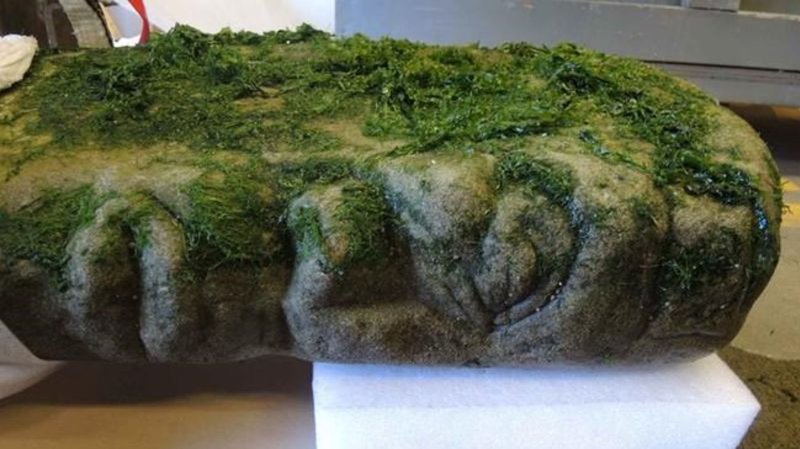
Carved stone pillar found on B.C. beach identified as Indigenous artifact
VICTORIA — The Royal B.C. Museum says it has confirmed a carved stone pillar found at low tide on a beach in Victoria last summer is an Indigenous artifact.
The museum says in a news release it will work with the Songhees and Esquimalt First Nations to determine the most suitable home for the pillar carved with the features of a face.
Archeology curator Grant Keddie says a local resident walking along the beach below Victoria’s Beacon Hill Park found the stone last July and shared photos with Keddie, who brought it back to the museum.
The museum says conservation staff worked to protect the integrity of the stone, which was covered in algae and weighs about 100 kilograms, while members of the Songhees and Esquimalt Nations were invited to assess it.
